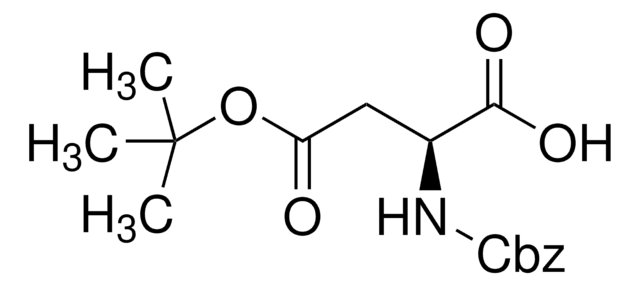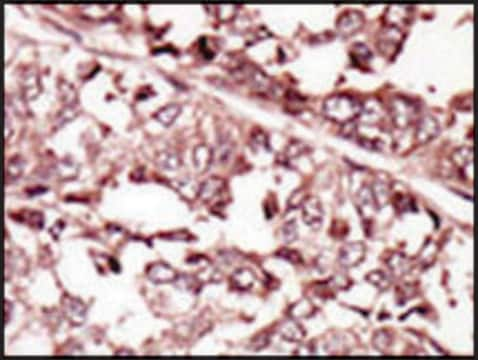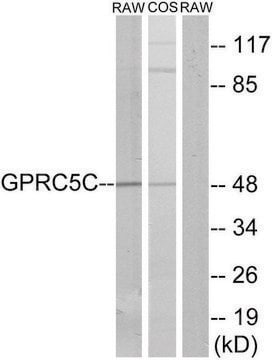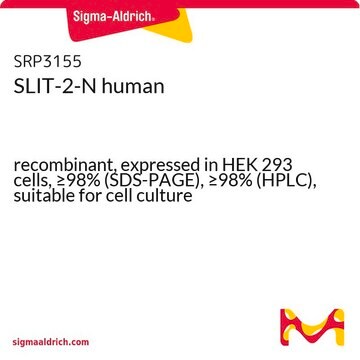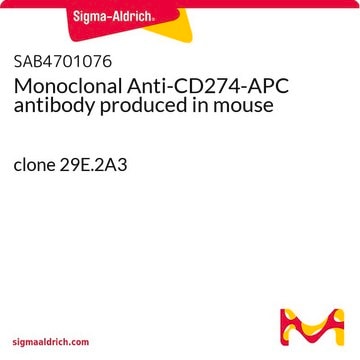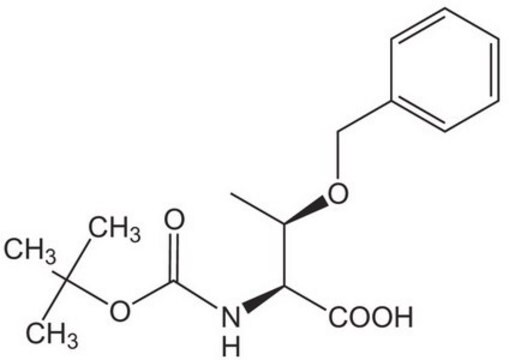ABS1485
Anti-Kinesin-like protein KIF7
from rabbit, purified by affinity chromatography
Synonym(s):
KIF7
Sign Into View Organizational & Contract Pricing
All Photos(1)
About This Item
UNSPSC Code:
12352203
eCl@ss:
32160702
NACRES:
NA.43
Recommended Products
biological source
rabbit
Quality Level
antibody form
affinity isolated antibody
antibody product type
primary antibodies
clone
polyclonal
purified by
affinity chromatography
species reactivity
human
technique(s)
western blot: suitable
NCBI accession no.
UniProt accession no.
shipped in
ambient
target post-translational modification
unmodified
Gene Information
human ... KIF7(374654)
General description
Kinesin-like protein KIF7 (UniProt: Q2M1P5; also known as KIF7) is encoded by the KIF7 (also known as UNQ340/PRO539) gene (Gene ID: 374654) in human. KIF7 is a member of kinesin-4 family that is essential for hedgehog signaling regulation. It localizes to cilia tips, the site of microtubule plus-ends, where it limits cilia length and controls cilia structure. KIF7 is required for the normal structure of primary cilia and in the absence of KIF7, cilia are long and unstable. KIF7 acts as both a negative and positive regulator of sonic hedgehog (Shh) and Indian hedgehog (Ihh) pathways, acting downstream of SMO, through both SUFU-dependent and -independent mechanisms. It negatively regulates Shh signaling by preventing inappropriate activation of the transcriptional activator Gli2 in the absence of ligand and positively regulates Shh signaling by preventing the processing of the Gli3 into its repressor form. KIF7 physically interacts with Gli transcription factors and controls their proteolysis and stability. Defects in KIF7 gene can lead to ciliary dysfunction, which result in a broad spectrum of disorders, collectively termed ciliopathies, including the Bardet-Biedl syndrome, a syndrome characterized by severe pigmentary retinopathy, early-onset obesity, polydactyly, hypogenitalism, renal malformation, and mental retardation. (Ref.: Cheung. H.O. et al. (2009). Sci. Signal. 2(76):ra29).
Specificity
Detects Kinesin-like protein KIF7 in HEK293 cells by Western blotting.
Immunogen
KLH-cojugated linear peptide corresponding to 14 amino acid fragment from the C-terminal region of human Kinesin-like protein KIF7.
Application
Research Category
Cell Structure
Cell Structure
This rabbit polyclonal Anti-Kinesin-like protein KIF7 Antibody, Cat. No. ABS1485 is validated for use in Western Blotting for the detection of Kinesin-like protein KIF7.
Quality
Evaluated by Western Blotting in HEK293 cell lysates.
Western Blotting Analysis: 2 µg/mL of this antibody detected Kinesin-like protein KIF7 in 10 µg of HEK293 cell lysate.
Western Blotting Analysis: 2 µg/mL of this antibody detected Kinesin-like protein KIF7 in 10 µg of HEK293 cell lysate.
Target description
~160 kDa observed; 150.59 kDa calculated. Uncharacterized bands may be observed in some lysate(s).
Physical form
Affinity Purified
Purified rabbit polyclonal antibody in buffer containing 0.1 M Tris-Glycine (pH 7.4), 150 mM NaCl with 0.05% sodium azide.
Storage and Stability
Stable for 1 year at 2-8°C from date of receipt.
Other Notes
Concentration: Please refer to lot specific datasheet.
Disclaimer
Unless otherwise stated in our catalog or other company documentation accompanying the product(s), our products are intended for research use only and are not to be used for any other purpose, which includes but is not limited to, unauthorized commercial uses, in vitro diagnostic uses, ex vivo or in vivo therapeutic uses or any type of consumption or application to humans or animals.
Not finding the right product?
Try our Product Selector Tool.
Storage Class Code
12 - Non Combustible Liquids
WGK
WGK 1
Flash Point(F)
Not applicable
Flash Point(C)
Not applicable
Certificates of Analysis (COA)
Search for Certificates of Analysis (COA) by entering the products Lot/Batch Number. Lot and Batch Numbers can be found on a product’s label following the words ‘Lot’ or ‘Batch’.
Already Own This Product?
Find documentation for the products that you have recently purchased in the Document Library.
Our team of scientists has experience in all areas of research including Life Science, Material Science, Chemical Synthesis, Chromatography, Analytical and many others.
Contact Technical Service